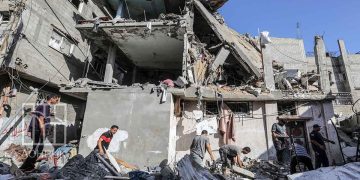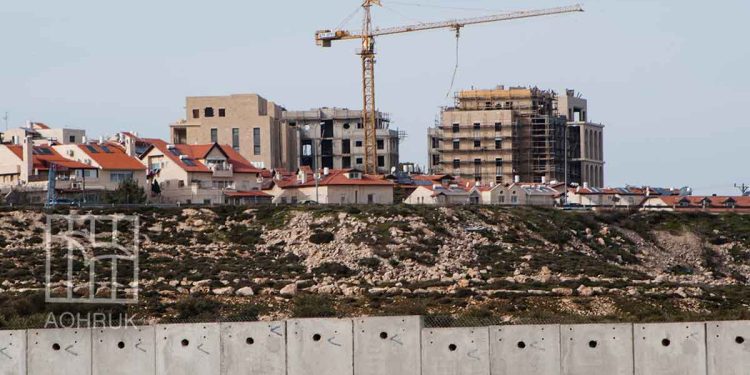The occupied West Bank has witnessed a new escalation in Israel’s settlement policy, following the announcement by the Israeli Ministry of Housing of two tenders for the construction of 356 housing units in the “Giv’at Binyamin” settlement, southeast of Ramallah.
The two tenders include the construction of 342 housing units distributed across five residential complexes, in addition to 14 houses designated for reservist soldiers.
This move comes as part of a series of settlement bids that have reached a record high this year, with more than 5,000 housing units announced since the beginning of 2025, compared with 3,808 units at the peak of 2018, indicating a deliberate Israeli policy aimed at deepening control over the occupied Palestinian territories.
Estimates suggest that the implementation of these projects will result in the addition of approximately 25,000 new settlers to the West Bank.
This settlement expansion constitutes a clear violation of international law, which prohibits the transfer of an occupying power’s civilian population into the territory it occupies, and undermines the prospects of establishing an independent Palestinian state.
Furthermore, ongoing settlement activity exacerbates restrictions on the movement of Palestinians, limits their access to land and natural resources, and hinders opportunities for economic and social development.
The number of settlers in the West Bank, including East Jerusalem, is estimated at over 700,000, placing vast areas of the territory under near-total Israeli control.
The continued expansion of settlements creates a system of apartheid on the ground, where Palestinians face severe restrictions on movement and access to their land, are denied the right to develop and reside in their historical areas, while settlements continue to rise on their confiscated land under the protection of occupation laws.
These developments highlight the urgent need to ensure the protection of human rights for all residents of the occupied territories, including the rights to housing, movement, and access to essential services, amid ongoing changes that directly affect their daily lives.


























